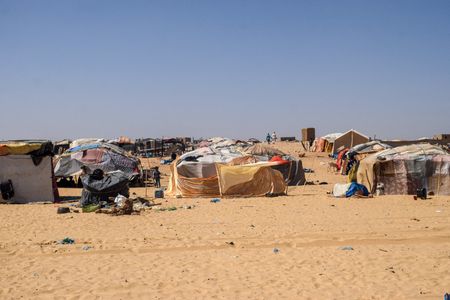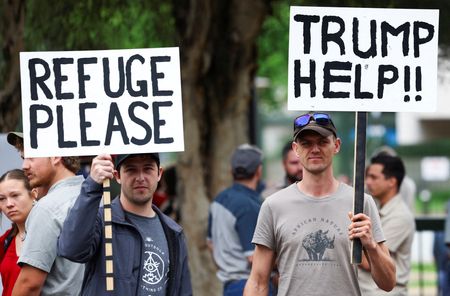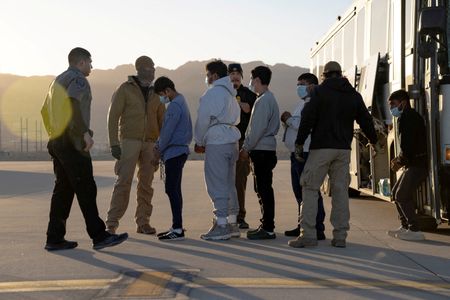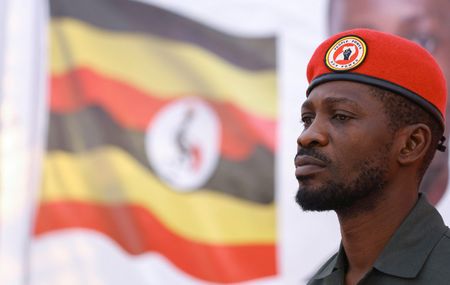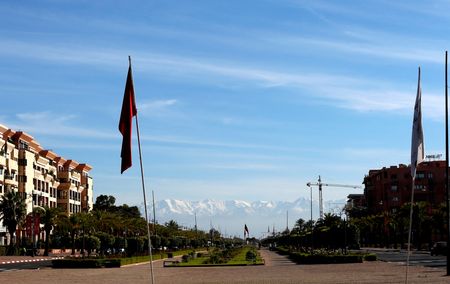By Portia Crowe
DAKAR (Reuters) – An attempt by Mali’s military government to stamp out public dissent by banning all political activity will be put to the test on Friday as critics wary of security and economic woes call for protests.
Authorities on Wednesday announced that all work by political parties and other political organisations had been suspended until further notice to preserve public order.
The move came ahead of planned protests in the capital, Bamako, and the city of Segou against the government, which came to power after coups in 2020 and 2021.
Government critics, including activists and opposition politicians, appeared keen to build momentum after unprecedented public gatherings on May 3 and 4 in Bamako. Those were triggered by recommendations from a national council of political actors to hand military leader Assimi Goita a five-year mandate and dissolve all political parties.
Several hundred participants carried placards displaying messages calling for multi-party elections and chanted slogans such as: “Down with dictatorship, long live democracy.”
While organisers of Friday’s protest postponed the event until further notice, calls for civil disobedience nonetheless circled on social media.
A spokesperson for Mali’s Ministry of Security and Civil Protection did not immediately respond to a request for comment.
The likelihood of a mass popular uprising remains low for now, especially in a country like Mali where multiple political opponents and government critics have disappeared from public view, including one on Thursday, according to his party – but analysts said the coming days will be a critical test.
If protesters come out in larger numbers than last weekend, and are perhaps tear-gassed or arrested, it could result in an even stronger backlash, said Benedict Manzin, an analyst with strategic risk consultancy Sibylline.
If a similar number of demonstrators, or fewer, take to the streets “because people have been intimidated into silence, then this will probably just go away”, he said.
WORSENING SECURITY
While the council’s recommendations on dissolving political parties and granting Goita a five-year mandate were an important trigger, the protests last weekend highlighted anger over a broad range of issues in a country where military leaders – who took power promising to stem the threat posed by jihadist groups – have instead overseen a worsening security situation.
“There are many factors,” said a Malian security analyst in Bamako who spoke on condition of anonymity for safety reasons. They include insecurity as well as social issues like power cuts, the high cost of living and job losses.
“The longer it goes on, the more unsustainable it becomes,” he said.
Much of northern Mali remains out of government control, and jihadist groups are expanding their reach and carrying out more frequent attacks around Bamako.
Last September, Al Qaeda affiliate Jama’a Nusrat ul-Islam wa al-Muslimin (JNIM) claimed an attack in the capital that hit an elite police training academy and the airport.
With insecurity as rampant as ever, military governments not just in Mali but in neighbouring Burkina Faso and Niger – all former French colonies – have leaned on anti-colonial rhetoric to justify their rule.
“But that gets old,” said Manzin.
“Livelihoods are being destroyed, the population are under threat of attack – eventually, what you need is just stability and economic well-being.”
Rather than a public uprising, a stronger threat to the current leaders would likely come from within the government itself, said Byron Cabrol, senior Africa analyst at Dragonfly.
“A wave of protests would not be enough to kind of incentivise someone [within the military government] to take action,” he said, “but it’s undoubtedly a contributing factor, among many others.”
(Reporting by Portia Crowe; Editing by Robbie Corey-Boulet and Sharon Singleton)

